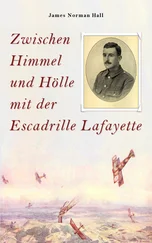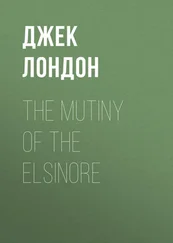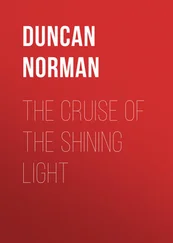With a nod to Hina my taio led me to his rustic dining room—a thatched shed in the shade of a clump of ironwood trees, about a hundred yards distant. The floor of coral sand was spread with mats, on which a dozen of the broad fresh leaves of the plantain served as our tablecloth. The men of Tahiti were uncommonly fond of the company of their women, whose position in society was perhaps as high as that of women anywhere. They were petted, courted, permitted no share in any hard labour, and allowed a liberty such as only our own great ladies enjoy. Yet in spite of all this, the Indians believed that Man was sky-descended, and Woman earth-born: Man raa, or holy; Woman noa, or common. Women were not permitted to set foot in the temples of the greater gods, and among all classes of society it was forbidden—unthinkable in fact—for the two sexes to sit down to a meal together. I was surprised to find that Hitihiti and I sat down alone to our dinner, and that no woman had a hand either in the cooking or in the serving of the meal.
We sat facing each other across the cloth of fresh green leaves. A pleasant breeze blew freely through the unwalled house, and the breakers on the distant reef made a murmuring undertone of sound. A serving man brought two coconut shells of water, in which we washed our hands and rinsed our mouths. I felt a sharp hunger, augmented by savoury whiffs of roasting pork from the cookhouse not far off.
We were given baked fish with cooked plantains and bananas; pork fresh from the oven, and certain native vegetables which I had never tasted before; and a great pudding to finish with, served with a sauce of rich, sweet coconut cream. I was only a lad, with the appetite of a midshipman, and I had been many months at sea, but though I did my best to maintain the honour of England by eating enough for three men, my host put me to shame. Long after repletion forced me to halt, Hitihiti continued his leisurely meal, devouring quantities of fish, pork, plantains, and pudding I can only describe as fabulous. At last he sighed and called for water to wash his hands.
“First eat—now sleep,” he said, as he rose. A wide mat was spread for us under an old branching purau tree on the beach. We lay down side by side for the siesta which in Tahiti always follows the midday meal.
This was the beginning of a period of my life on which I look back with nothing but pleasure. I had not a care in the world, save the making of my dictionary, in which I took the keenest interest, and which gave me sufficient occupation to prevent ennui. I lived on the fat of the land, amongst affectionate friends and amid surroundings of the most exquisite beauty. We rose at dawn, plunged into the river which ran within pistol shot of Hitihiti’s door, ate a light breakfast of fruits, and went about our occupations until the fishing canoes returned from the sea at eleven or twelve o’clock. Then, while the meal was preparing, I had a bath in the sea, swimming across to the islet or sporting in the high breakers further west. After dinner the whole household slept till three or four in the afternoon, when I frequently joined them in excursions to visit their friends. After sundown, when the strings of candlenuts were lit, we lay about on mats, conversing or telling stories till one after another dropped off to sleep.
During the voyage out from England I had gone through Dr. Johnson’s dictionary, which had been provided for me marking such words as seemed to me in most common usage in everyday speech. I had then set these down alphabetically—nearly seven thousand in all. My present task was to discover and set down their equivalents in the Indian tongue. I have always loved languages; the study of them has been one of the chief interests of my life, and in my younger days I could pick up a new tongue more readily, perhaps, than most men. If I am blessed with any talent, it is the humble one of the gift of tongues.
The language of Tahiti appealed to me from the first, and with the help of my taio, his daughter, and young Maimiti, I made rapid progress and was soon able to ask simple questions and to understand the replies. It is a strange language and a beautiful one. Like the Greek of Homer, it is rich in words descriptive of the moods of Nature and of human emotions; and, like Greek again, it has in certain respects a precision that our English lacks. To break a bottle is parari; to break a rope, motu; to break a bone, fati. The Indians distinguish with the greatest nicety between the different kinds of fear: fear of a scolding or of being shamed is matan; fear of a dangerous shark or of an assassin, riaria; fear of a spectre must be expressed with still another word. They have innumerable adjectives to express the varying moods of sea and sky. One word describes the boundless sea without land in sight; another the deep blue sea off soundings; another the sea in a calm with a high oily swell. They have a word for the glance which passes between a man and a woman planning an assignation, and another word for the look exchanged by two men plotting to assassinate a third. Their language of the eyes, in fact, is so eloquent and so complete that at times they seem scarcely to need a spoken tongue. They are masters of the downcast eye, the sidelong glance, the direct glance, the raising of the eyebrow, the lift of the chin, and all the pantomime with which they can communicate without those about them being aware of the fact.
I think I may say, in all truth, that I was the first white man to speak fluently the Tahitian tongue, and the first to make a serious attempt to reduce the language to writing. Sir Joseph Banks had provided me with a brief vocabulary, compiled from his own notes and from Captain Cook’s, but as soon as I heard the Indian tongue spoken I realized that, as he had suggested, a new system of orthography must be devised. Since my work was to be done for the benefit of mariners, it seemed better to aim at simplicity than at a high degree of academic perfection, so I devised an alphabet of thirteen letters—five vowels and eight consonants—with which the sounds of the language could be set down fairly well.
Hitihiti spoke the Tahitian language as only a chief could, for the lower orders, as in other lands, possessed vocabularies of no more than a few hundred words. He was interested in my work and of infinite use to me, though, as with all his countrymen, mental effort fatigued him if sustained for more than an hour or two. I overcame this difficulty by making myself agreeable to the ladies, and dividing my work into two parts. From Hitihiti I learned the words pertaining to war, religion, navigation, shipbuilding, fishing, agriculture, and other manly pursuits; from Hina and Maimiti I obtained vocabularies concerning the pursuits and amusements of women.
I opened my chest on the day of my arrival at their house and made my host a present of what I thought would please him and the ladies most. This was the seal on our pledged friendship, but though my files, fishhooks, scissors, and trinkets were received with appreciation, I had the satisfaction of learning, as time went on, that the friendship of an Indian like Hitihiti was not for sale. He and his daughter and his niece were sincerely fond of me, I believe, showing their affection in many unmistakable ways. I must have been an infinite nuisance to them, with my pen and ink and endless questions, but their patient good-humour was equal to my demands. Sometimes Maimiti would throw up her hands in mock despair, and exclaim laughingly: “Let me be! I can think no more!” or the old chief, after an hour’s patient answering of my questions, would say: “Let us sleep, Byam! Take care, or you will crack your head and mine with too much thinking!” But on the next morning they were always ready to help me once more.
Each Sunday I gathered my manuscript together and reported myself on board the Bounty to Mr. Bligh. I must say, in justice to him, that whatever task he undertook was thoroughly performed. He showed the greatest interest in my work, and never failed to run over with me the list of words I had set down during the week. Had his character in other respects been equal to his courage, his energy, and his understanding, Bligh would to-day have his niche in history, among the great seamen of England.
Читать дальше











